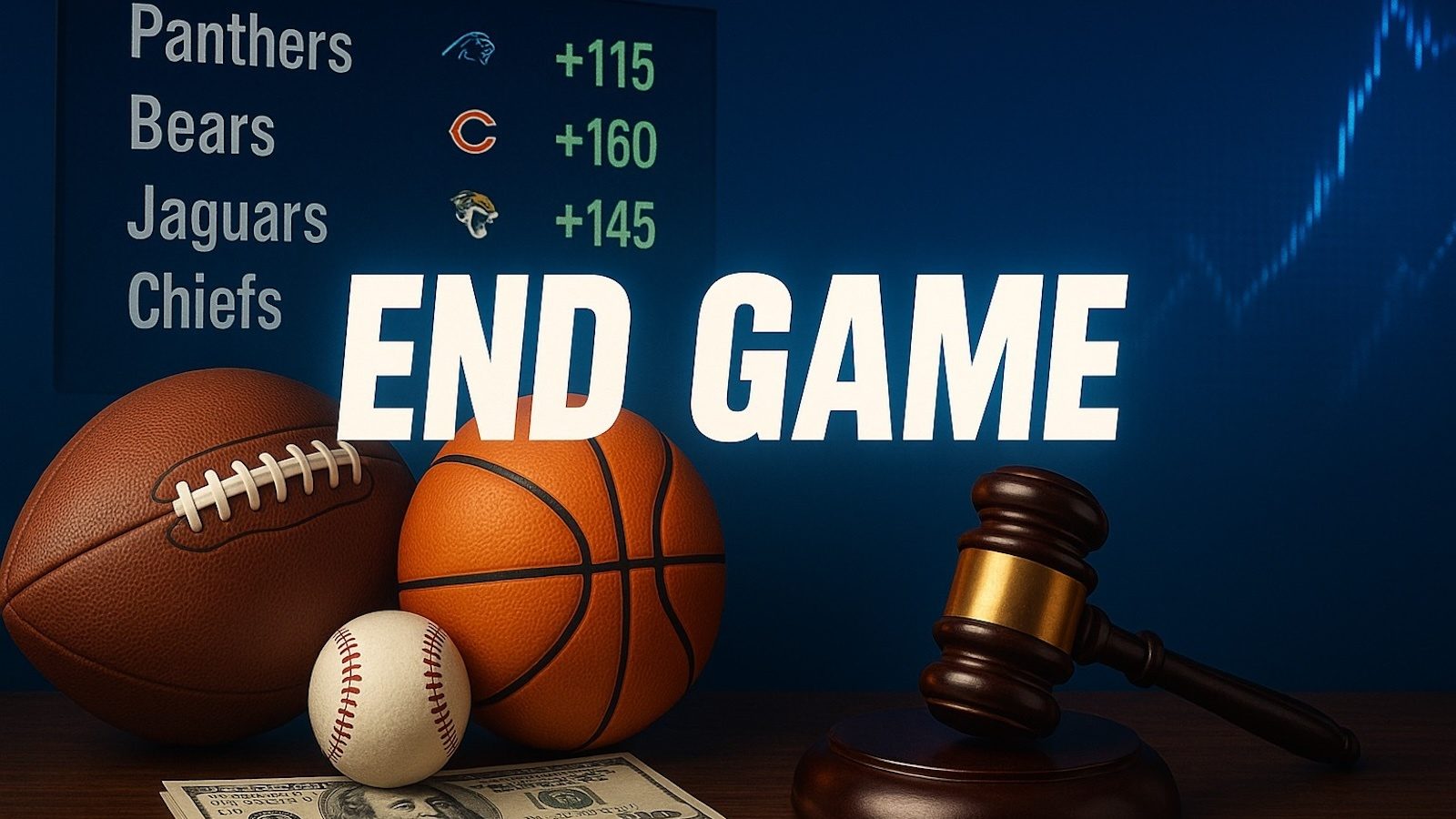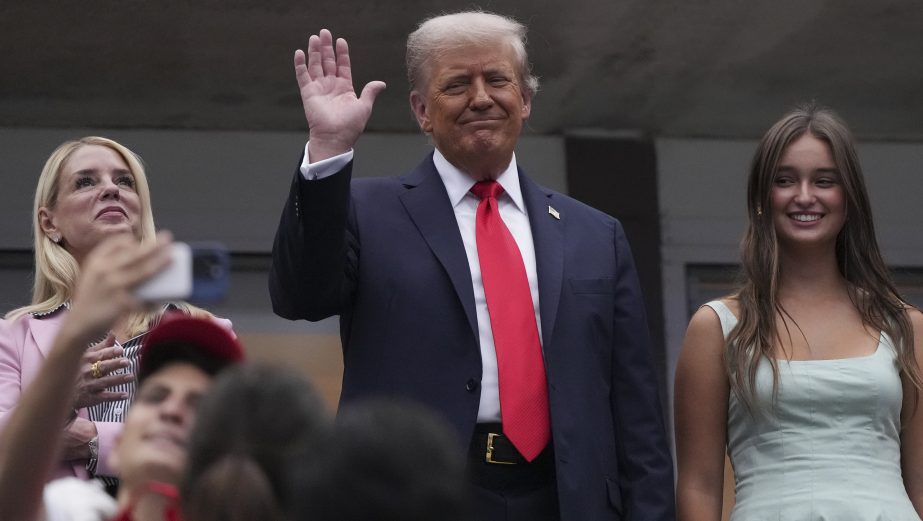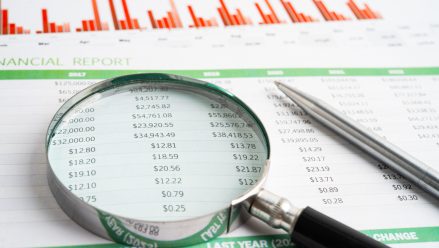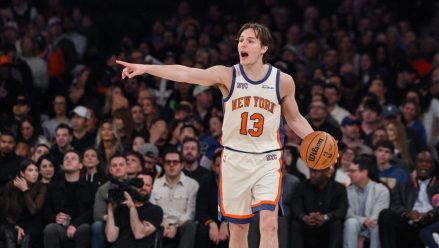The U.S. sports betting world moves quickly and unpredictably in 2025. In order to properly take stock of it all, we offer InGame’s “EndGame,” an end-of-week compilation of the top storylines, some overlooked items, and all the other news bits from this past week that we found interesting.
NCAA to delay allowing pro betting
The NCAA Tuesday announced that it will delay until Nov. 22 implementing a new rule that would allow of-age student-athletes in legal jurisdictions to legally sports bet on professional sports. The NCAA’s Division II and III councils Oct. 22 approved a new rule that would allow NCAA athletes and athletic department employees to bet on pro sports beginning Nov. 1. The Division I Council approved the change earlier this month, but following the news of the NBA betting scandal, it voted to push back the start date to allow D1 members to reconsider. Two-thirds of the D1 members must vote to reverse the proposal in order to overturn it.
After approval of the rule, the D1 Council got pushback from SEC commissioner Greg Sankey, Pittsburgh football coach Pat Narduzzi, and others, per CBS Sports. Narduzzi called the proposal “absolutely one of the stupidest decisions I’ve ever seen.” Nov. 22 is one day after a period during which schools can vote to veto, or overturn, proposed rules changes that were approved by less than 75% of the D1 Council members.
Southern Utes won’t get Seminole model
Late last week, a U.S. district court judge dismissed the Southern and Mountain Utes complaint against the state in which the tribes sought to offer statewide digital sports betting. Per the original filing, the tribes believe that their compacts should allow them to offer what commercial operators are offering — statewide digital betting.
The state, it appears, would allow that if the tribes agree to be taxed and regulated by the state, as those in Arizona and Michigan are. But the Ute tribes want the “Seminole Model,” in which Florida’s Seminole Tribe and the state agreed via compact that bets are considered placed where received. In Florida, every wager flows through a server on tribal land. The tribe does not pay a set tax to the state; rather, the two have a revenue-share agreement.
The Ute compacts don’t include the magic language about bets being considered placed where received, and the state must agree to include that language in the compacts for the tribes to get what they want — digital betting with tribal rather than state oversight. While federally recognized tribes are sovereign, the 1988 Indian Gaming Regulatory Act (IGRA) put barriers around gaming, and it generally only applies to gaming on tribal land.
U.S. District Court Judge Gordon Gallagher wrote Oct. 23 that he believes a bet is placed where the bettor is physically located and that “the distinction is crucial in this action and fatal to the tribes’ case.” Because IGRA did not directly address digital betting, Gallagher said a new “legal tension” exists when considering Indian gaming in the current technological landscape.
Kalshi adds new wrinkle in Minnesota
Stakeholders in Minnesota have said they are on the same page when it comes to legalizing digital sports betting. And that’s a heavy lift in a state with tribal casinos, race tracks, state-run pull tabs, charitable gaming, and more.
But in September, even as lawmakers and tribes came together at the Indian Gaming Association mid-year conference to rally support and lay out a plan, the one caveat was politics and the makeup of the legislature heading into 2026 and beyond.
Nearly two months later, with Kalshi and Crypto.com offering sports event contracts, and Polymarket prepping to go live, Kalshi continues to disrupt. Lt. Gov. Peggy Flanagan, who has tribal roots, is among those supportive of a state-regulated market, but Kalshi is supporting her opponent. The next chance to replace Flanagan is 2026. In the past, the biggest legalization roadblock was the state senate. Two vacant senate seats will be filled Nov. 4.
Rozier owed $8M in taxes in 2023
ESPN reported Tuesday that Miami Heat guard Terry Rozier owed $8 million in taxes in 2023, the year that he allegedly fixed NBA games by leaving a game early in order for “under” bets to pay. The IRS filed a $8,218,211 federal income tax lien on Rozier’s residence in Broward County in Florida, ESPN reported after obtaining county records.
Rozier allegedly shared his plans for an early exit from a March 2023 game with a friend who then sold the information for $100,000. Legal sportsbooks flagged unusual betting activity on Rozier, whom the NBA previously cleared of any violations.
Rozier and his friend, De’Niro Laster, were among more than 30 people the FBI said it arrested last Friday as part of two illegal gambling probes. Rozier was charged with conspiracy to commit wire fraud and conspiracy to commit money laundering. The NBA put Rozier on leave after the arrest.
Caesars not moving on prediction markets
Caesars Entertainment will not get into prediction markets until there’s more certainty about their legal status, chief executive Tom Reeg said Tuesday.
On a third-quarter earnings call, Reeg said Caesars would “make sure we’re not left behind if there’s regulatory clarity.” He added that, while there’s still uncertainty, “our best approach is just to monitor it, put our plans in place, make sure that we’re adequately resourced, and be ready to move if there’s a legalization definition in either direction.”
He added that “we can’t be out on the lead on this one” and cited potential regulatory action against prediction markets as well as warnings from regulators to sportsbook licensees about getting involved in the sector. Regulators in multiple states — including Nevada, where Caesars owns and operators eight casinos on the Las Vegas Strip — have warned operators that getting into prediction markets may put their license suitability into question.
Daniel O’Boyle
NTRA says ‘no’ to federal betting tax
The National Thoroughbred Racing Association (NTRA) Monday weighed in on the passage in the “One Big Beautiful Bill Act” that would reduce the tax deduction on gambling winnings from 100% to 90%. The reduction could end up costing losing bettors. According to a press release, the change “could cost horse racing upwards of a billion dollars annually in pari-mutuel handle, according to some industry estimates.”
Introduced in September, the WAGER (Withdrawing Arduous Gaming Excise Rates) Act would repeal that part of the bill and return the deduction to 100%.
Ahead of the Breeders Cup, which runs Friday and Saturday at the Del Mar Fairgrounds in greater San Diego, the NTRA is releasing an advertising campaign that supports the WAGER Act.
Odds and ends
- Ohio Gov. Mike DeWine told the Columbus Dispatch Tuesday that Major League Baseball shared that it “thought they had an agreement” to ban microbets with all but one major sports betting platform. DeWine characterized the bets as “dangerous.”
- Canada’s Senate sent S-211, the bill that would restrict gambling advertising, to the House of Commons for consideration. The bill would task the Office of the Minister of Canadian Heritage with crafting a national advertising framework, with an eye toward limiting when, where, and how often gambling ads could be displayed. The House has 25 sitting days on which a bill could be considered before it adjourns for the year Dec. 17.
- St. Louis University and FanDuel Sports Network on Wednesdsay announced a partnership in which at least 10 men’s and one women’s basketball games will be broadcast on the network this upcoming season.
- Last Friday, the NCAA announced that three former Eastern Michigan University basketball players declined to participate in an investigation related to sports betting violations. The trio have no eligibility remaining, but pulling the players’ eligibility is the only punishment available to the NCAA for a rules violation.
- The Illinois bill that would ban funding gambling, including sports betting accounts, with credit cards filed during the veto session will have to wait for action for the 2026 session. Filed Oct. 14, a day ahead of the start of the veto session, HB 4149 would also ban buying lottery tickets with credit and ATMs from casino floors. The bill was assigned to the Rules Committee but did not get a hearing. The veto session ends Friday.
Check it out
The Atlantic‘s Marc Novicoff on Sunday published a piece that effectively explains the history of futures contracts, the proliferation of prediction markets, Kalshi in particular, and why digital sports betting is now available in all 50 U.S. states, even though it’s not legal in more than a dozen of them.
ICYMI on InGame
NBA vs Coinbase: The Double Standard Of Market Manipulation
Tonko’s Renewed Push For Federal Wagering Regulation The Latest Response To NBA Scandal
Congress Wants A Word With NBA Commissioner Silver
Federal Judge Sends Kalshi Vs. Massachusetts Case Back To State Court
Kalshi On Regulatory Tightrope With Global Exchange, But One European Regulator Considers Action
Jim And Maureen Downs, Architects Who Foresaw The Rise Of Prediction Markets
Trump CFTC Pick Michael Selig Worked On ’24 Letter Backing Sports Event Contracts
DraftKings, Flutter Shares Fall Further Amid New Prediction Market Entrants, Unfavorable NFL Results
New York State Latest To Be Sued By Kalshi After Cease-And-Desist Sent
Arkansas Attorney General: Prediction Markets ‘Violate The Law’
Professor: Sports Can Be Redeemed If Gambling Scandals Are Contained








